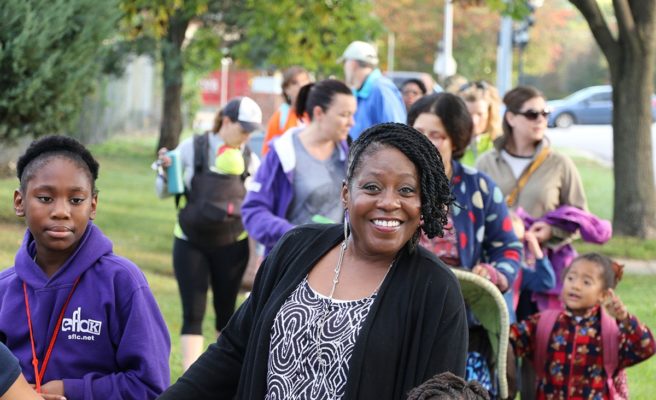Parent involvement in a student’s education not only fosters relationships between parents and students; it is also proven to increase student success. Studies show that students do better both academically and socially when families build positive relationships with their students’ school. According to the National Coalition for Parent Involvement in Education, parent involvement in education is not optional – it’s crucial. Despite the family’s income or background, “Students with involved parents are more likely to have higher grades and test scores, attend school regularly, have better social skills, show improved behavior, and adapt well to school.”
So, how can parents be involved in their children’s school? There are all different levels of involvement and it’s important to remember that what works for one family might not work for another. There are going to be times when parents can be more involved than others – and that is completely fine! KCPS’ Family and Community Engagement (FaCE) office has a great way of defining different levels of parent and family engagement and examples of how to put these into action:
Awareness
Parents and families know and can recall school and district level activities, events, and initiatives and respond accordingly when requested
- Examples: Signing permissions slips for student activities; knowing enrollment dates; ensuring child meets attendance goals; equipping children with necessary school supplies
Involvement
Parents and families are not only aware of school and district level activities, events, and initiatives, but they actively participate when requested or invited
- Examples: Attending parent-teacher conferences, ensuring students homework is completed regularly; attending selected school functions, such as donuts with dads and curriculum nights
Engagement
Parents and families are an integrated part of the school and district level activities, events, and initiatives
- Examples: Visiting student’s classroom, communicating regularly with school teachers and staff; joining school and/or district-level advisory group(s); attending school and district workshops and trainings to further personal and student development; volunteering in areas of need at the school and/or district-level(s)
Empowerment
Parents and families are active participants in stakeholder decision making at the school and/or district-level, and they regularly collaborate with school and/or district staff to execute school improvement plans and/or other district initiatives.
- Example: Serving in a leadership role
Remember, not everyone is suited for the same type of involvement. You may have to “try on” a few activities before you find something that feels right. If you need ideas, ask your child’s teacher, who will likely be glad to help you think of something!
